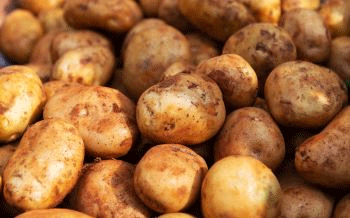Main factors for the sharp increase in supplies
In 2024, potato supplies from China to Russia increased fivefold, reaching 46.7 thousand tons – 37.4 thousand tons more than last year. This jump is due to a decrease in prices for Chinese potatoes and a reduction in domestic production. A decrease in yield, a decrease in crop area and unfavorable weather conditions were the key reasons for the decline in yields within the country. Price dynamics and impact on the market.
The decrease in the cost of Chinese potatoes to about 33 thousand rubles per ton contrasts with the sharp rise in prices for the domestic product. In some regions, there has been a significant jump, where prices for Russian potatoes have almost doubled. Along with the rise in prices, production costs have also increased: fuel, fertilizer and logistics costs have grown, which has led to an increase in the cost price, but the profitability of production has also improved significantly.
Regional characteristics and dependence on imports
The federal districts of the Far East and Siberia remain the most dependent on imports. Production in these regions does not cover local demand, which forces farmers to actively attract a foreign partner to ensure stable supplies of potatoes. This situation emphasizes the need to revise the strategy for agricultural development in regions where imports are becoming an important element of food security.
State support and strategic goals
To stabilize the market, the authorities have introduced tariff benefits for the import of certain vegetables, including potatoes. In parallel, measures are being developed to increase the yield and processing of domestic products. Strategic plans provide for an increase in potato production to 8.6 million tons by 2030, which should contribute to the development of exports and processing. These initiatives are aimed at increasing the competitiveness of Russian agribusiness and reducing dependence on imports.
Analytical view of current trends
The POTATOES NEWS portal has repeatedly noted that the globalization of supplies is becoming a significant factor in the context of changing climatic and economic realities. Reducing prices for imported potatoes creates pressure on domestic producers, stimulating them to optimize production processes and implement innovative technologies. Such a challenge can become a catalyst for restructuring the market: improving product quality and developing the processing industry can become key factors for successfully overcoming competition with imports.
What measures do you think will help Russian producers effectively compete with the growth of potato imports?







